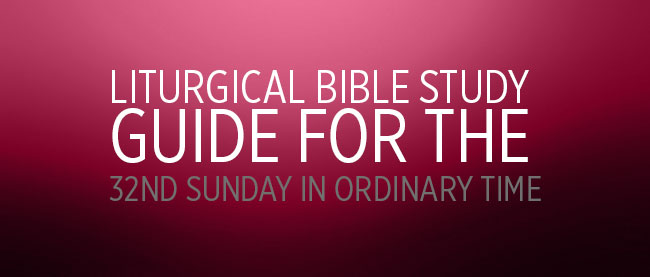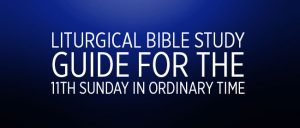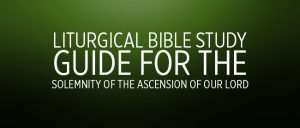1st Reading – Wisdom 6:12-16
This book, which the Vulgate calls “Wisdom” and the Septuagint calls “The Wisdom of Solomon,” is one of the most typical books of Wisdom literature. Although the book itself claims that it was written by Solomon, it is a case of
pseudonymity: a device often used in the ancient world to highlight the importance of a literary work. Here the author has used the prestige of Solomon, the greatest of the wise men of Israel. The inspired writer wrote the entire book in Greek and is thought to have been a Hellenized Jew, thoroughly familiar with Greek culture, writing probably at Alexandria (Egypt).
Against the background of Egyptian worship of animals and mockery of Jewish trust in God, the author devotes much of the first part of his book to the ineffectiveness of such mockery when God has promised immortality to those who remain faithful. Using Greek modes of thought, he is the first to express the hope of afterlife in terms of immortality of the individual soul.
In the second section of his book, from which our reading for today comes, the inspired author speaks in praise of wisdom.
To the Jew, wisdom is the knowledge of how to conduct oneself in speech and conduct in such a way as to dispose others favorably, to foster one’s own success and advancement, and to live free of the anxiety which arises from hostility, opposition, and failure. Young men were trained in the manners of a good scribe when they learned their
letters. Israelite wisdom differed from the wisdom of other cultures in that it was modified by its relation of faith in Yahweh. Other cultures, such as the Egyptians, had gods who were venerated for their wisdom. These gods were consulted like specialists: one for love, another for the sea, another in matters of war, yet another for something else. Only Yahweh is truly wise – his wisdom is exhibited in creation. In the Old Testament wisdom appears as a personified accompaniment of Yahweh in His creation – as a heavenly being which reflects the majesty and attributes of divinity – a personification of Yahweh’s functions.
2nd Reading – 1 Thessalonians 4:13-18
Christian teaching on the end of the world and the last things is the subject which receives the most attention in both 1st and 2nd Thessalonians. The matter is dealt with on two levels: what happens to a person when he or she dies (individual eschatology); and what happens at the end of time, when the ultimate victory of the Church will be revealed, the good will go to heaven and the reprobate will be condemned (general eschatology).
Man’s life does not end with death, because his soul is immortal and lives forever. Unlike those who have no hope, believers should not be saddened by the prospect of death (the opening verse of today’s reading). The moment the soul is separated from the body, it enjoys the vision of God (Philippians 1:23; 2 Corinthians 5:8), but the body must await the day of resurrection – Christ has risen and we too will rise and join Him (the second verse of today’s reading).
Therefore, we hope in the resurrection of our bodies at the end of time, when our Lord comes again in glory. Saint Paul describes this second coming as an event of great solemnity in our reading today, an event accompanied by an angel’s call and the sound of a trumpet. The language Saint Paul uses to describe this event (called apocalyptic language) highlights the mystery and power of God. After the parousia (Greek for “appearance” or “showing”) will come the resurrection of the dead. Each body will be brought back to life by its own soul, and those who are still alive on that day will, together with their brethren who are dead and have risen, go to meet the Lord (what the Fundamentalists call the “rapture”). However, the bodies of both will be glorified and therefore those who died before the parousia will have no advantage or disadvantage compared to those who are still living at this point.
Gospel – Matthew 25:1-13
Last week we heard Jesus take the scribes and Pharisees to task for not “fathering” the people; for not setting the proper example and treating them fairly. We now skip over chapter 24 (this chapter is read in the 1st Sunday of Advent, Cycle A and on June 30th, the Feast of the First Martyrs of the Church of Rome), and move to the parable of the wise and foolish virgins; a parable peculiar to Matthew. There is little detailed information about wedding practices at the time of Christ, but there was a solemn procession from the home of the bride to the home of the bridegroom: the taking of the bride from her father’s house to his own by the bridegroom was the symbolic act of marriage. Since the bridesmaids went to welcome the groom, this indicates that they went to accompany him and his party to the house of the bride and from there, presumably to the house of the groom. It is from the wedding feast that the foolish virgins are excluded – and since it is the bridegroom who denies them, the feast must be at his house.





